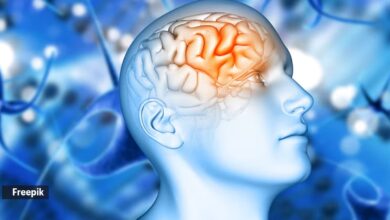What is microbiota crowding?

Gut and lifestyle coach Luke Coutinho recently detailed the case of a 33-year-old male patient with gut troubles like acute abdominal pain, bloating, oscillating between constipation and loose motions, and difficulty digesting most foods. His standard tests, like endoscopy and colonoscopy, were done, and H. pylori came out “clean.” The patient didn’t find any relief as he was adminered heavy antacids and digestive enzymes. “Little to zero relief on some days. The patient lost a lot of weight, used to be active, (did) weights and cardio, but fatigued to work out now,” Coutinho wrote in an Instagram post.
After a thorough evaluation with questions ranging from nutrition, exercise, sleep, emotional health, family hory, medical hory, medicine symptoms correlation, relationships, workplace, family life, and supplements, it was found that probiotics he started taking about five months ago were to blame. “This is where it gets interesting. This young man had read some articles about probiotics and their impact on gut health, fat loss, and better digestion. He had started with a supplement at 50 billion cfu…after a month, he increased it to 100 million cfu…he was on this for five months in a row and increased the dose from 1 to 2 when he started to have abdominal pain and bloating…We stopped the probiotic much against his wish as he wondered how a probiotic could have anything to do with this…it’s been less than a week, and every symptom has disappeared…”
Coutinho expressed, “Magic?…nah…common sense, knowledge, and experience… this is called microbiota crowding.”
Story continues below this ad
Are you taking supplements? (Source: Freepik)
Explaining further, Coutinho noted that the microbiome contains millions and trillions of fungi, microbes, bacteria, and viruses, all working in harmony with each other, an intelligence, to maintain the ecology within the gut and body. “If you don’t need any probiotics, constantly taking probiotics because they sound good through cherry-picked science and marketing, you crowd up your microbiota. It durbs the fine balance of intelligence, leading to gut problems,” said Coutinho.
Taking a cue from the case, let’s understand more about microbiota crowding and how probiotics, touted to be effective for gut health, can cause issues, too.
What is it?
Microbiota crowding refers to an “imbalance in the gut ecosystem,” which disrupts the average diversity of microbiota. “In a healthy gut, various microorganisms coex, contributing to digestion, immunity, and nutrient synthesis. However, when specific bacteria proliferate excessively, it can lead to an imbalance, or dysbiosis, which can affect overall health,” said Dr Vikas Jindal, consultant, dept of gastroenterology, CK Birla Hospital, Delhi.
Causes
Microbiota crowding can be triggered several factors, including:Story continues below this ad
– Antibiotic overuse: Frequent or inappropriate use of antibiotics can kill off beneficial bacteria, allowing harmful species to dominate.– Poor diet: A diet high in processed foods, sugar, and unhealthy fats can encourage the growth of harmful bacteria.– Chronic stress: Stress can affect gut health disrupting the gut-brain axis, leading to bacterial imbalance.– Infections: Bacterial or viral infections can alter the composition of the gut microbiota.– Lack of physical activity: A sedentary lifestyle may negatively affect gut health.
Symptoms and issues
Microbiota crowding can significantly affect health due to the critical role gut bacteria play in regulating many bodily functions. Dr Jindal said that an overgrowth of certain bacteria may result in:
– Inflammation: Dysbiosis can trigger inflammation in the gut and other body parts, contributing to conditions like irritable bowel syndrome (IBS), inflammatory bowel disease (IBD), or even autoimmune diseases.Metabolic issues: An imbalance in gut bacteria is linked to obesity, diabetes, and metabolic syndrome due to altered processing of nutrients.– Immune dysfunction: A crowded microbiota can weaken the immune system’s ability to fight infections.– Mental health issues: Gut-brain axis disruption can lead to mood disorders like anxiety or depression.
Prevention
– Healthy diet: A balanced diet rich in fibre, fruits, vegetables, and fermented foods promotes bacterial diversity.– Probiotics and prebiotics: Consuming natural probiotic-rich foods (yogurt, kefir) and prebiotic fibre (garlic, onions, bananas) can help maintain a balanced microbiota instead of taking excessive supplements without guidance.– Exercise: Regular physical activity improves gut health.– Limit antibiotic use: Use antibiotics only when necessary, as directed a healthcare professional.
Treatment
Dr Jindal said:Story continues below this ad
– Dietary changes: Increasing fibre intake and reducing processed foods can help reestablish balance.Fecal microbiota transplantation (FMT): In severe cases of dysbiosis, FMT, in which healthy donor bacteria are transplanted into the gut, may be considered.– Stress management: Techniques like mindfulness, yoga, or meditation can reduce stress-related gut issues.
DISCLAIMER: This article is based on information from the public domain and/or the experts we spoke to. Always consult your health practitioner before starting any routine.







